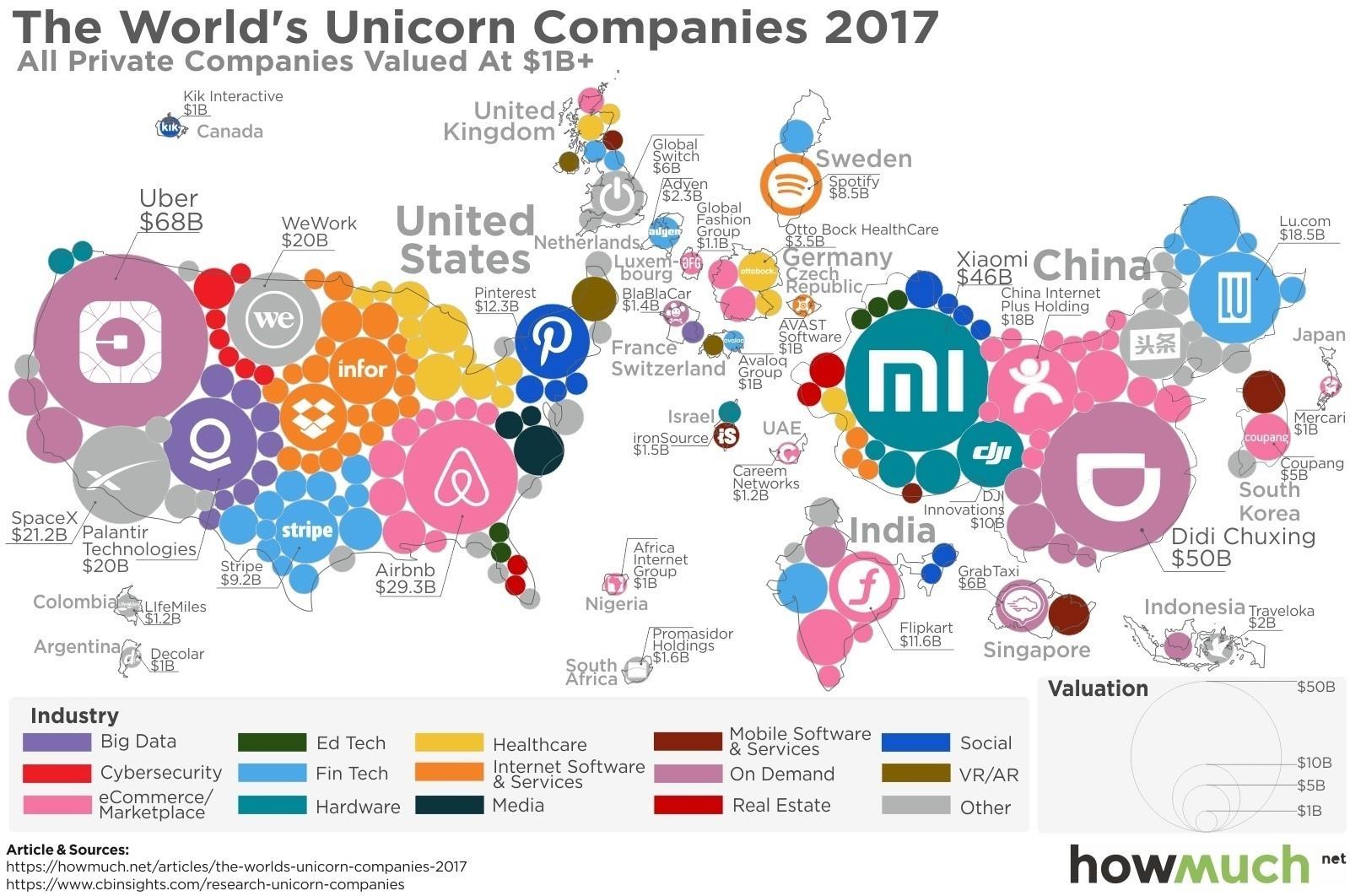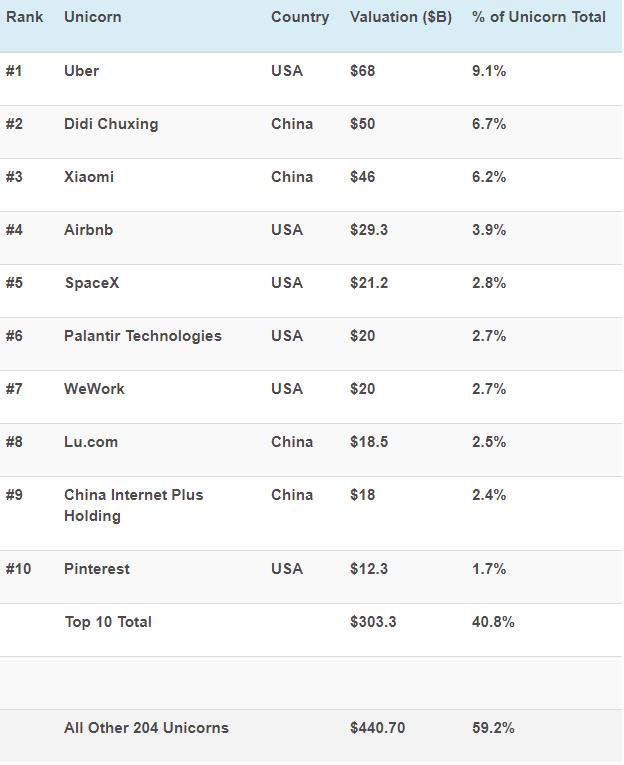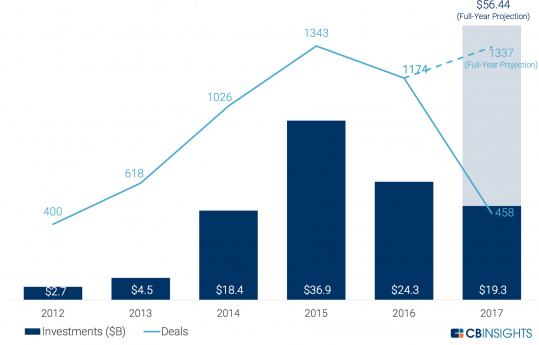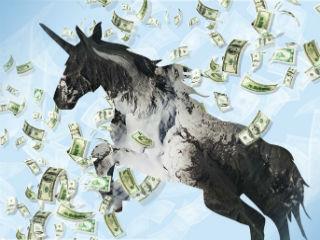by
Briony Harris*
Unicorns – privately owned tech start-ups with a value of more than $1 billion – are powerful forces of disruption, wherever they are found.
California’s Silicon Valley remains dominant breeding ground for billion-dollar start-ups, but China is catching up fast.
So far this year, 46 global technology companies have reached unicorn status, according to research from CB Insights. Of those, China has produced 17 – only slightly fewer than the 19 created in the US.
The growth is dramatic given that in 2014 China only had eight unicorns. Now it has 56. And four out of the global top 10 biggest unicorns are from China.
Other areas of the world lag significantly behind, with Europe only producing seven unicorns, and India, Indonesia and Africa one each.


The world’s biggest unicorns


Uber v Didi
The most ubiquitous unicorns – Airbnb, Spotify, Uber, Dropbox and Pinterest – have entered our lives and lexicon with services as easy, accessible and familiar as popping to the supermarket.
Others tend to be known when used in a work context or because of a specialist interest; the flexible office space firm WeWork, Elon Musk’s aerospace company SpaceX and the data analysis start-up Palantir which specialises in anti-terrorism, for example.
But Chinese unicorns – such as transport firm Didi Chuxing, bike-sharing start-up Mobike, smartphone maker Xiaomi, or online food delivery service Ele.me – are often unfamiliar to people living outside of China.
Much of their power and scale comes from the size of the Chinese marketplace that they dominate.
In fact, Didi Chuxing, which has an estimated value of $50 billion, last year defeated Uber, the world’s biggest unicorn, in a battle between the two transport start-ups, having won a rare and significant investment from Apple.
Most of China’s new class of unicorns are in the e-commerce and online marketplace industries, a reflection of the growth of China’s middle class with its ever-increasing appetite for online goods and services.
Follow the money
The ability to produce unicorns depends on investors willing to stump up the cash, as well as consumers willing to buy the product or service.
China’s largest internet giants – Baidu, Alibaba, Tencent and JD.com – have invested in 46% of China’s unicorns, according to CB Insights.
But venture capitalists are also still taking a keen interest in Asia, with a record $56.4 billion projected to go to Asian-headquartered tech companies by the end of 2017.
Venture capital funding to Asia-based tech companies

This increased investment activity contributes to higher valuations that in turn encourage more big-ticket investment from the likes of Apple, Facebook or Google.
Global ambitions?
While the rise of the Chinese unicorns is interesting in itself, it may be even more fascinating to observe what they do (and where they go) next.
Recently, Chinese bike-sharing start-ups, Mobike and Ofo, have begun to talk about their ambitions to expand globally.
Can these firms which have captured the Chinese markets on such a large scale translate their offering to a global audience?
Unicorns may be a statistical rarity, but there's nothing mythical about the rise of China's start-up scene. It's time for the rest of the world to pay closer attention.
*Formative Content
**First published in www.weforum.org
*Formative Content
**First published in www.weforum.org




 By: N. Peter Kramer
By: N. Peter Kramer
